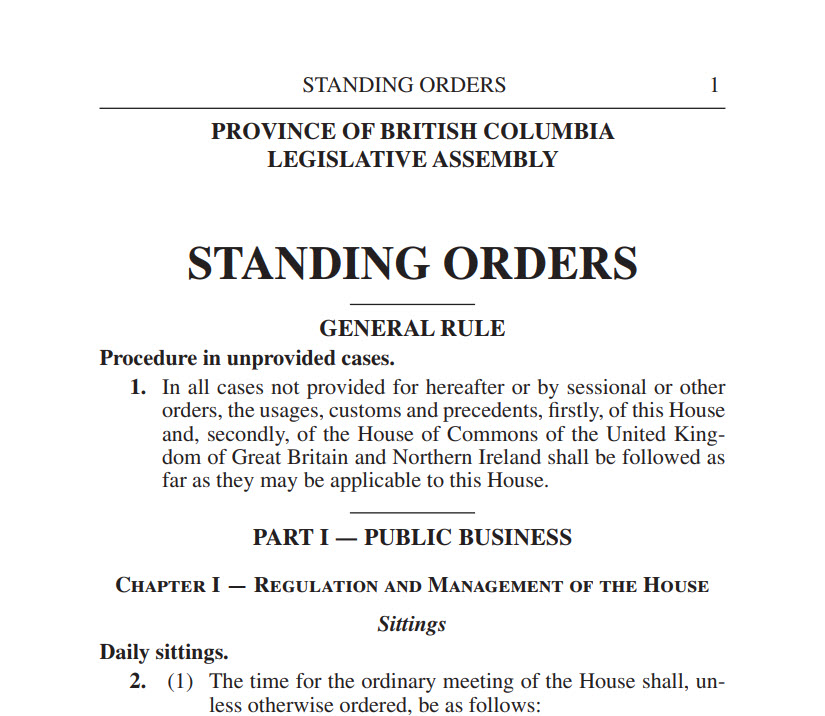B.C.’s system of government is based on the United Kingdom’s and has a long history dating back over 800 years. This system of government is often referred to as the Westminster tradition of parliamentary democracy, named after the Palace of Westminster where the British Parliament meets.
While Westminster is home to the British Parliament, its influence is felt right across Canada. The preamble of the Constitution Act, 1867, provides that Canada shall have a constitution similar in principle to that of the United Kingdom. Consequently, the first provinces to join Confederation based their legislatures solely on the Westminster Parliament. In B.C., as with other provinces that joined Confederation after 1867, Westminster remained the theoretical model.
Parliamentary procedure is governed by both a common law tradition and by written rules. The common law of all Parliaments includes the rulings of the Speaker, historical customs, and unwritten convention. In B.C., these have been informed by precedents in our own Legislative Assembly, from Westminster, and from other jurisdictions that similarly follow the Westminster tradition.
The written rules governing the proceedings of the Legislative Assembly of B.C. are called the Standing Orders. Standing Orders specific to B.C. were first created in 1930 and they also rely on the precedent of Westminster. In the words of Standing Order One: “In all cases not provided for hereafter or by sessional or other orders, the usages, customs and precedents, firstly, of this House and, secondly, of the House of Commons of the United Kingdom of Great Britain and Northern Ireland shall be followed as far as they may be applicable to this House.” However, this has not prevented B.C. from adopting practices from other Parliaments that are also based on the Westminster tradition.

